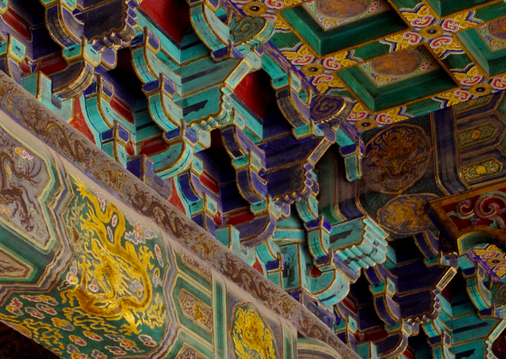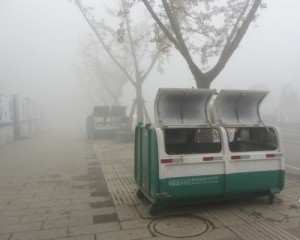Links » Cream » In Syria, a Rare Chinese Foray into Foreign Policy
Links » Cream » In Syria, a Rare Chinese Foray into Foreign Policy |
- In Syria, a Rare Chinese Foray into Foreign Policy
- 中宣部:温家宝总理出访
- Grads Face Tough Job Market
- Chongqing, a Slippery Stepping Stone
- Photo: Forbidden Detail, by Mark Hobbs
- Ministry of Truth: Power and Air
- Ministry of Truth: Spirit of the 18th Party Congress
- Word of the Week: Soy Sauce
- Censorship Vault: Beijing Internet Instructions Series (14)
- The Key to Bringing Democracy to China
- Ministry of Truth: Death of Runaways in Guizhou
| In Syria, a Rare Chinese Foray into Foreign Policy Posted: 21 Nov 2012 10:31 PM PST After vetoing a resolution that would have imposed sanctions on the administration of Syrian president Bashar al-Assad, China has offered a four-point plan to try to end an ongoing civil conflict there. Presented on October 31, the plan has four main points, as summarized by U.S. News and World Report:
The Washington Post reports on the international response to the proposal:
The Council on Foreign Relations blog explains further why the impact of the proposal is likely to be limited:
While the proposal is unlikely to change the global dynamics surrounding the situation in Syria, Ian Bremmer argues that the existence of the proposal itself is significant because it signifies a new attitude from China toward its role in conflicts outside its borders. From Reuters:
Read more about China and Syria via CDT. For another perspective on China's relationship to the al-Assad regime, see Hexie Farm's latest contribution to his CDT series. © Sophie Beach for China Digital Times (CDT), 2012. | Permalink | No comment | Add to del.icio.us |
| Posted: 21 Nov 2012 06:53 AM PST 中宣部:有关温家宝总理出访的报道一律严格按新华社通稿刊播。 【数字时代真理部系列:"在这里,了解祖国" "真理部"是网民对中国共产党中央委员会宣传部和其下属的各省宣传部,以及国家级的国务院新闻办公室,中央文明办,国家广播电影电视总局,出版总署,文化部等一系列言论出版审查机构的总称。】 © Xiao Qiang for China Digital Times (CDT), 2012. | Permalink | No comment | Add to del.icio.us |
| Posted: 21 Nov 2012 04:22 PM PST  On-campus recruitment ad from cell phone manufacturer Xiaomi. As China's breakneck rate of economic growth finally begins to slow, some analysts are holding their breath for the country's "hard landing." There are signs that direct foreign investment, consumption and other important indicators are on a downturn. For the country's college students, their future after graduation is uncertain. On top of all this, the government may be under-reporting the slowdown:
The anonymous BBS forum post below describes a sharp decline in on-campus recruiting at Nankai University in Tianjin, a coastal city not far from Beijing. It compounds Chovanec's concern, adding that the media have remained upbeat in order to smooth the path for "The Meeting" (last week's 18th Party Congress). The post seems to no longer be available on NewSMTH.net (水木社区), where it first appeared. But if the censors decided it painted to bleak a picture, then it has years of post-graduation struggle to erase:
Read more about the Chinese economy from CDT. Via NewSMTH.net. Translation by Mengyu Dong. © Anne.Henochowicz for China Digital Times (CDT), 2012. | Permalink | One comment | Add to del.icio.us |
| Chongqing, a Slippery Stepping Stone Posted: 21 Nov 2012 02:08 PM PST The CPC Central Committee has appointed Sun Zhengcai to fill Bo Xilai's former position as Chongqing's Party chief, following interim secretary Zhang Dejiang's appointment to the Politburo Standing Committee last week.
With the transition to a new generation of leadership still underway, Sun's assignment will prepare and test him for an anticipated key role in the next. From Brian Spegele at The Wall Street Journal:
Cheng Li's biographical entry on Sun at The Brookings Institution highlights his PhD, a year spent studying in the U.K., and a "humble" family background, another difference between him and princelings like Bo and Xi.
Modest background is shared by Hu Chunhua, or "Little Hu". Both men have just received seats on the "outer" Politburo, are relatively young at 49, and are strongly tipped for future leadership. From Cheng Li at Brookings:
Hu the Younger's current role is as Party secretary for Inner Mongolia: see 'Little Hu and the Mining of the Grasslands' on CDT. He is now widely expected to take over as Guangdong Party head, though it was rumoured last month that he was also a contender for the Chongqing position. Both he and Sun may then rise to the Politburo Standing Committee in 2017, when five of the seven current members are due to retire. Last week, Bloomberg traced their likely trajectories.
Nothing about future leadership transitions can be taken for granted, however, as the current Party secretary in Guangdong and Sun's predecessor in Chongqing might attest. © Samuel Wade for China Digital Times (CDT), 2012. | Permalink | No comment | Add to del.icio.us |
| Photo: Forbidden Detail, by Mark Hobbs Posted: 21 Nov 2012 01:30 PM PST © Samuel Wade for China Digital Times (CDT), 2012. | Permalink | No comment | Add to del.icio.us |
| Ministry of Truth: Power and Air Posted: 21 Nov 2012 12:53 PM PST The following examples of censorship instructions, issued to the media and/or Internet companies by various central (and sometimes local) government authorities, have been leaked and distributed online. Chinese journalists and bloggers often refer to those instructions as "Directives from the Ministry of Truth." CDT has collected the selections we translate here from a variety of sources and has checked them against official Chinese media reports to confirm their implementation. Since directives are sometimes communicated orally to journalists and editors, who then leak them online, the wording published here may not be exact. The original publication date is noted after the directives; the date given may indicate when the directive was leaked, rather than when it was issued. CDT does its utmost to verify dates and wording, but also takes precautions to protect the source.
© Anne.Henochowicz for China Digital Times (CDT), 2012. | Permalink | One comment | Add to del.icio.us |
| Ministry of Truth: Spirit of the 18th Party Congress Posted: 21 Nov 2012 12:00 PM PST The following example of censorship instructions, issued to the media and/or Internet companies by various central (and sometimes local) government authorities, has been leaked and distributed online. Chinese journalists and bloggers often refer to those instructions as "Directives from the Ministry of Truth." CDT has collected the selections we translate here from a variety of sources and has checked them against official Chinese media reports to confirm their implementation. Since directives are sometimes communicated orally to journalists and editors, who then leak them online, the wording published here may not be exact. The original publication date is noted after the directives; the date given may indicate when the directive was leaked, rather than when it was issued. CDT does its utmost to verify dates and wording, but also takes precautions to protect the source.
© Anne.Henochowicz for China Digital Times (CDT), 2012. | Permalink | No comment | Add to del.icio.us |
| Posted: 21 Nov 2012 12:00 PM PST Editor's Note: The CDT Grass-Mud Horse Lexicon is a glossary of terms created by Chinese netizens and frequently encountered in online political discussions. These are the words of China's online "resistance discourse," used to mock and subvert the official language around censorship and political correctness. The Word of the Week features Lexicon entries old, new and timely. If you are interested in participating in this project by submitting and/or translating terms, please contact the CDT editors at CDT [at] chinadigitaltimes [dot] net.  "What the f**k does it have to do with me? I was just out buying soy sauce." 打酱油 (dǎ jiàngyóu): getting soy sauce This means "no comment" or "none of my business." It is a humorous way for netizens to distance themselves from a sensitive or political topic. The word came into popular usage after Guangzhou Television interviewed a local resident about the Edison Chen photo scandal. The man answered, "What the f**k does it have to do with me? I was just out buying soy sauce." See also soy sauce committee members. © Anne.Henochowicz for China Digital Times (CDT), 2012. | Permalink | No comment | Add to del.icio.us |
| Censorship Vault: Beijing Internet Instructions Series (14) Posted: 21 Nov 2012 11:04 AM PST In partnership with the China Copyright and Media blog, CDT is adding the "Beijing Internet Instructions" series to the Censorship Vault. These directives were originally published on Canyu.org (Participate) and date from 2005 to 2007. According to Canyu, the directives were issued by the Beijing Municipal Network Propaganda Management Office and the State Council Internet management departments and provided to to Canyu by insiders. China Copyright and Media has not verified the source. The translations are by Rogier Creemers of China Copyright and Media.
These translated directives were first posted by Rogier Creemers on China Copyright and Media on November 21, 2012 (here). © Anne.Henochowicz for China Digital Times (CDT), 2012. | Permalink | No comment | Add to del.icio.us |
| The Key to Bringing Democracy to China Posted: 21 Nov 2012 10:32 AM PST At Foreign Policy, MIT's Yasheng Huang suggests that the best way to promote democracy in China would be to stress elite self-interest over moral values. Huang also challenges the argument that asking China to democratise after thirty years of massive economic growth under Party rule is, in Eric X. Li's words, "like asking Apple to turn itself into RIM."
Huang also explored whether democracy stifles economic growth in a 2011 TED talk. The question of Chinese democracy has been debated recently by Martin Jacques and Zhang Weiwei versus Anson Chan and Jonathan Mirsky at Intelligence Squared, and by Eric X. Li versus Minxin Pei at the Aspen Ideas Festival. Li has been a particularly vocal defender of the Party's record in English-language media, and explained to Rachel Beitarie earlier this year why he believes democracy is not the answer for China. Equally vigorous discussion has centred on the degree of meritocracy in China's current system. © Samuel Wade for China Digital Times (CDT), 2012. | Permalink | 2 comments | Add to del.icio.us |
| Ministry of Truth: Death of Runaways in Guizhou Posted: 21 Nov 2012 07:03 AM PST The following example of censorship instructions, issued to the media and/or Internet companies by various central (and sometimes local) government authorities, has been leaked and distributed online. Chinese journalists and bloggers often refer to those instructions as "Directives from the Ministry of Truth." CDT has collected the selections we translate here from a variety of sources and has checked them against official Chinese media reports to confirm their implementation. Since directives are sometimes communicated orally to journalists and editors, who then leak them online, the wording published here may not be exact. The original publication date is noted after the directives; the date given may indicate when the directive was leaked, rather than when it was issued. CDT does its utmost to verify dates and wording, but also takes precautions to protect the source.
Last Friday, the bodies of five boys between the ages of nine and 13 were found in a dumpster in the city of Bijie, Guizhou, China's poorest province. Most sources report the children died of carbon monoxide poisoning from a fire they lit inside to keep warm. Their parents had been searching for them weeks before they were found. Several local officials and two school masters have been fired following the incident. © Anne.Henochowicz for China Digital Times (CDT), 2012. | Permalink | No comment | Add to del.icio.us |
| You are subscribed to email updates from Update » Links » China 优文 Cream To stop receiving these emails, you may unsubscribe now. | Email delivery powered by Google |
| Google Inc., 20 West Kinzie, Chicago IL USA 60610 | |




Comments